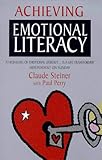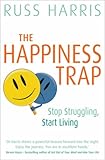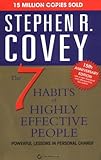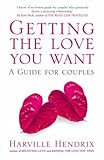 I’m sat here typing this at six o’clock in the morning in my pants. This may seem odd to many people but it makes perfect sense to me. This blog post will attempt to explain why I do (some of ) the things I do, and why knowing why I do the things I do helps me. I’m hoping that for you, once you start understanding why it’s good to work with someone who knows why you do the things YOU do (or at least is able to have an educated guess), you will see the benefit of working with a therapist.
I’m sat here typing this at six o’clock in the morning in my pants. This may seem odd to many people but it makes perfect sense to me. This blog post will attempt to explain why I do (some of ) the things I do, and why knowing why I do the things I do helps me. I’m hoping that for you, once you start understanding why it’s good to work with someone who knows why you do the things YOU do (or at least is able to have an educated guess), you will see the benefit of working with a therapist.
Back to my pants. Us humans are complex. Very complex. Relatively speaking, we know very little about how the human brain works and the complexities of the human psyche are astounding. What if we could have a good guess about some of the things that are going on by observation though? Just observing me sitting here in my pants might tell you a lot about the sort of person I am (sorry to keep bringing my pants up – I’m sure you have a Homer Simpson Y front type image and I’m sad to say it’s not too far from the truth these days). You could probably make a fair few educated guesses about my background, my interests, my aims in life, my energy levels and enthusiasm. By reading my work you would be able to tell things about my educational background, how and whether I like to connect to other people and whether I have a sense of humour. All this from observing me typing on my PC.
Transactional Analysis
Enter Transactional Analysis (TA). TA is one way of attempting to understand why we do the things we do. Its core parts join together to form a rough picture of who we are, where we came from and why we do the things we do. Let’s have a go at applying TA theory to me siting here typing now.
- I seem to be able to communicate effectively and have a purpose to what I’m doing so you may argue that I am in my Adult ego state (i.e behaving in an adult way) and I have some energy in my Child ego state (that child part of me that is making silly comments about pants – there – did it again).
- I work by providing therapy to individuals and couples. This tells you that I like to help people and make a pretty good guess (correctly) that I have spent much of my life doing this. I was probably taught it was good to help others by my parents as a child. In TA terms you might say that I have a script belief that helping others keeps me safe and gets me attention (known as strokes in TA language).
- I am choosing to pass my time by carrying out an activity. Once more this may be a way of me getting strokes from those around me. (yep- that’s true too and why all bloggers love the readers to comment on their posts – so please comment below!)
- Whilst you are reading this post you will start to have feelings about me. You may have decided I’m a decent chap with an odd sense of humour or even that I am a rather annoying individual who talks rubbish. Either way the feelings you have about me tell you something about how others may experience me.
Now you are starting to build up a profile of who I am, how I relate to the world, how others relate to me and why I may choose to get up at 6am and start writing about TA. You are nowhere near understanding the complexities of my psyche – but a journey of a thousand miles begins with a single step.
Why is it useful for you to find these things out about yourself?
This is where we go back to a fundamental principle of TA. We made these decisions about how we run our lives. Some of these decisions were made out of our awareness – they met our needs at the time and kept us safe when we were kids. If we made the decision then we can change the decision. Here’s an example of that. The second bullet point above points out that one of the reasons I am a therapist is that I like to help people. I didn’t just spontaneously develop that like, it’s something I learnt to do as a kid. When I helped my parents I got lots of attention. Helping = attention = confirming that I exist.
Helping others is a great thing to do but it isn’t appropriate all the time. By working with a therapist who has spotted my need to “please others” I can work out when helping is useful to me and to those I am helping and when it is not. Sometimes it may be more appropriate for me to please myself and recharge my batteries, or let others look after me for a bit. It’s important for me to get the balance right. There will also be times where it would be more appropriate for me to back off and let others look after themselves. Both adults and children need this to allow them to develop feelings of autonomy. For example, if I always did my daughters homework for her then she could interpret this “help” as a message that she is incapable of doing things for herself and her self-esteem could suffer as a result.
What I hope I have done in this post is get across the message that we do things for a reason. There are very few random acts for humans. We make mistakes, mess up and get ourselves into difficult situations because we learnt to think, feel and behave in certain ways as we grew up. A therapist’s job is to work with you to help you identify which thoughts, feelings and behaviours are still useful to you as an adult and change the things that no longer serve you. TA is one tool they can use to help this process.
want to know more about Transactional Analysis? Download my FREE guide (RRP – £9.99) by clicking here.
 There are many books out there on therapy, self-help, counselling and personal change so how do you know which ones are worth reading and which ones are best avoided? Personal recommendations count for a lot and I often get asked what books to read. Some of the following five books have been recommended to me and I have happened upon others by luck, chance or good fortune. I see it as my turn to pass on those recommendations, or that luck, to you.
There are many books out there on therapy, self-help, counselling and personal change so how do you know which ones are worth reading and which ones are best avoided? Personal recommendations count for a lot and I often get asked what books to read. Some of the following five books have been recommended to me and I have happened upon others by luck, chance or good fortune. I see it as my turn to pass on those recommendations, or that luck, to you.




 Big question. And as far as I’m concerned there is a simple answer. Yes. Therapy can work very effectively. I can hear you now though, quite rightly, shouting at your monitor, “but you’re a therapist so you’re bound to say that” so let’s see if I can convince you further.
Big question. And as far as I’m concerned there is a simple answer. Yes. Therapy can work very effectively. I can hear you now though, quite rightly, shouting at your monitor, “but you’re a therapist so you’re bound to say that” so let’s see if I can convince you further.